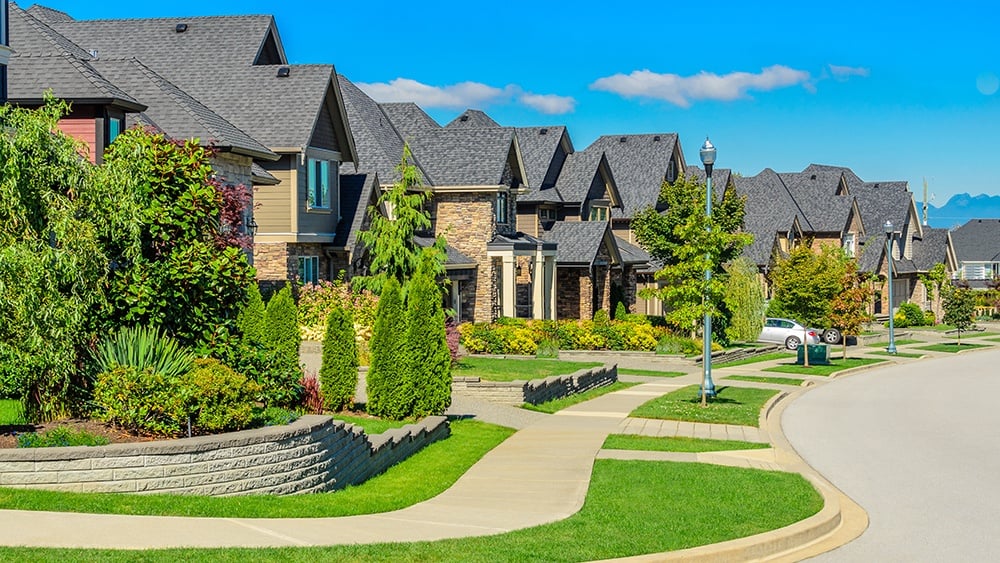At Brunswick Crossing, it’s easy to see the benefits of an HOA community. Your opinions regarding the community are taken into account, your new home’s property values remain high, and you gain access to high quality amenities, like the fitness center, and local conveniences, like Weis Markets.
Before you submit a down payment, you should know the ins and outs of a homeowners association. Here’s everything you need to know about the board, meetings, responsibilities, and more:
Who runs the homeowners association?
The HOA acts through its board of directors. These individuals can volunteer or be elected to certain positions, including the following:
President
The president of a homeowners association is given powers similar to a chief executive officer of a business. Your community’s bylaw provisions can limit or extend a president’s duties, but it’s presumed that they will:
- Preside over all meetings
- Execute contracts, orders, and other documents in the name of the association
- Assume day-to-day responsibilities for and in the best interest of the association
- Authorize specific actions in furtherance of the board’s policies
- Serve as a spokesperson for the board
Vice President
The VP can perform the above-mentioned duties in the absence or inability of the president. Other responsibilities vary from board to board, but they’ll most often chair a subcommittee, such as the architectural review committee or neighborhood watch.
Secretary
The secretary is expected to:
- Develop a meeting agenda
- Keep and maintain meeting minutes
- Organize all board documents
- Ensure records are accessible to all authorized members
- Effectively communicate with the board and neighborhood
Treasurer
The treasurer is responsible for handling funds, securities, and financial reports of the association, which means they’re expected to:
- Oversee that the appropriate people handle and maintain financial records
- Coordinate the development of the proposed annual budget
- Prepare and recite the financial status at each meeting
What does the HOA board do?
A homeowners association’s duties vary for each community. Overall, the committee acts as a cornerstone, bringing harmony and pride to the neighborhood. It preserves the community's architectural integrity, maintains common areas, and budgets for recreational and necessary changes to the community while making every effort to do what it can to protect property value.
Homeowners will most commonly recognize our board's efforts through services like community pool management, resident-only events, trash or recycling pick-up, holiday decorating, and snow removal.
When do they meet?
According to The Highnell Companies, a community management company in Chico, Calif., there are four types of meetings:
Annual: These meetings are required by the governing documents, which specify when it’ll be conducted and how and when to notify residents, who are encouraged to attend. This meeting typically discusses the proposed budget, elections, individual committee reports, and items of common interest.
Board: Most associations hold board meetings monthly or quarterly based on the “parliamentary procedure, such as the Open Meeting Act.” These meetings discuss items of notice only like policy, property management progress, operations, and resident disputes.
Emergency: This meeting “is necessary when circumstances that could not have been reasonably anticipated and which require immediate attention or possible action by the board.” It’s called by the president or by more than two board members other than the president.
Executive: The board is required to give a two-day notice for these private meetings if not held in conjunction with a board meeting. Topics of discussion are limited to law, personnel, contracts, and delinquency, so residents aren’t permitted to attend.
Where does the board meet?
Most meetings are in a common area like a community center. If an emergency meeting is called, it can be held by phone or email “if all directors agree in writing.”
If you decide to move into an HOA community, it’s important to stay involved. This could mean attending meetings, going to community events, or volunteering for a board position.
If you want to know a little more about your neighborhood’s HOA, check out 75 Great Questions To Ask Every HOA Community or subscribe to our weekly blog:



